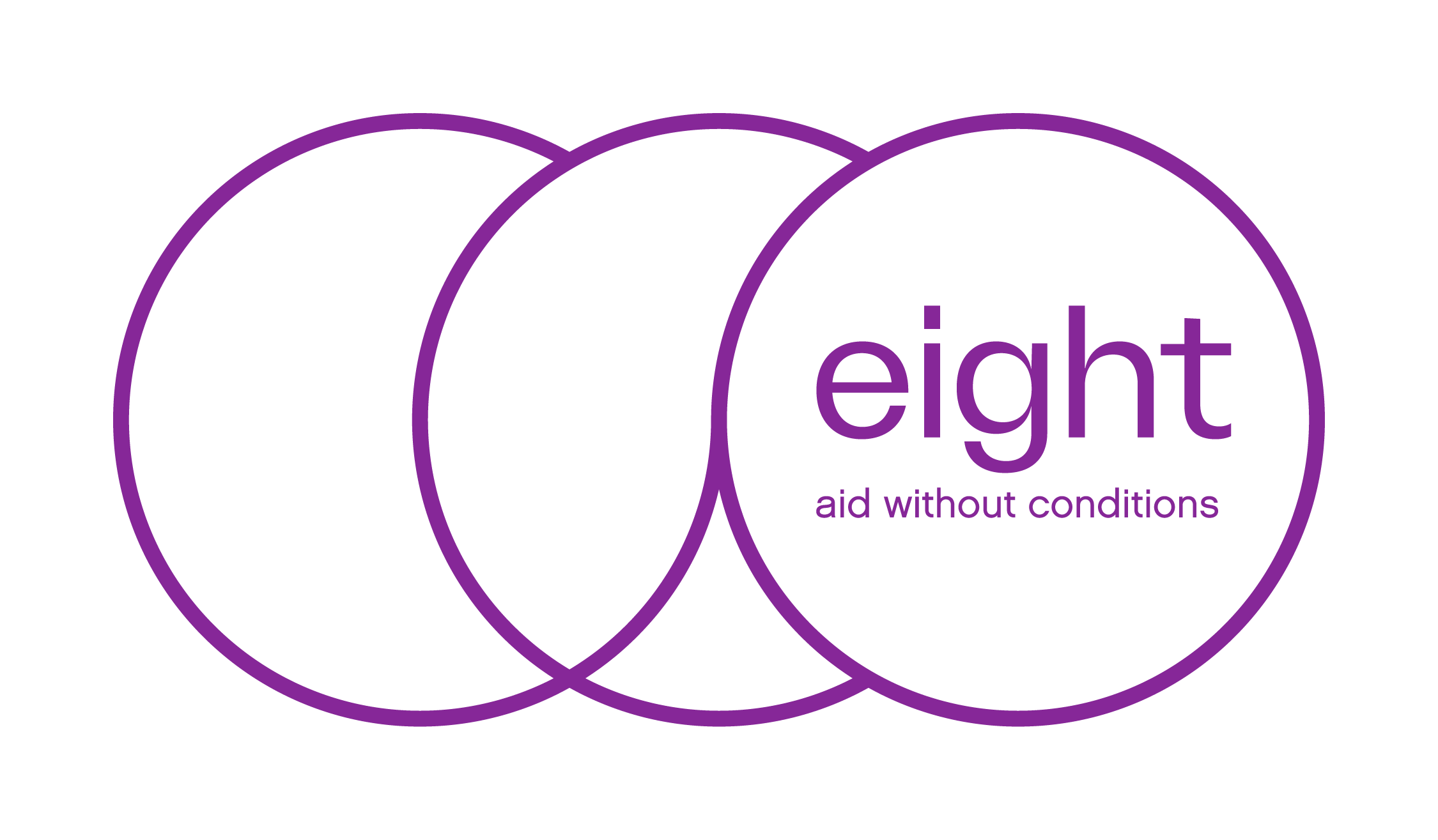— Eight
Amsterdam, the Netherlands, 11 May 2021 – Eight’s basic income project, in collaboration with IPIS, the Belgian Development Cooperation, Fairphone, announces the expansion of its basic income pilot project in the Democratic Republic of Congo (DRC). From 2022 to 2026, following the first village that was onboarded in October 2021 in Lutala, the project will scale up in the same region (in the Kalima, Maniema province), providing the entire region with a basic income boost – or unconditional cash transfers (UTC) – for two years. The full project will run until 2026 and the pilot project in Lutala with funding from Proximus and Umicore, will run until October 2023.
Eight’s basic income project has a standard structure: all residents of the village receive a fixed monthly amount deposited to their individual mobile bank account. In Uganda, adults will receive 16 euros and young people under 18 receive 8 euros through their guardian. The income comes with no other conditions. In the DRC, adults will receive USD 20 and young people under 18 will receive USD 10 a month. The DRC is particularly affected by poverty, with 37% of its population identified as severely multidimensionally poor, and 77% of the population living on less than 1.90 USD per day. Even though the DRC is one of the richest countries in the world in terms of mineral wealth (in 2011 the DRC’s untapped mineral reserves were estimated to be worth 24 trillion USD), this wealth does not contribute to local development, and does not lift local artisanal and small-scale mining (ASM) communities out of poverty – for example, in Eastern Congo.
A study commissioned by Fairphone and IPIS estimated that the income of miner households with one breadwinner in artisanal 3T (tin, tantalum, tungsten) did not cover costs of basic needs in the mining areas of Itebero (North Kivu) and Nzibira (South Kivu). In the first village that was onboarded, 32.5% of the villagers work as tin miners. Most of the miners combine mining with another job (mainly farming), namely 92%. Interestingly, only a small minority of the miners possess a miner’s card, and the majority do not use protective equipment while working in the mine. The project will assess whether these working conditions change as a result of the UTC.
Research is an important pillar of the project. Whilst the cash transfer comes without conditions, IPIS, one of the project partners, will monitor its effects, such as reducing child labour, increasing happiness levels and its influence on freedom of choice. The project will also examine the impact on education, health, entrepreneurship and collective action and compare the developments of the villages with a ‘control’ village.
Juma Kisembo, Eight Coordinator in Uganda, commented: “Our previous projects in Uganda have already proven how big the impact of basic income is on education, health, entrepreneurship and collective action. Now that we can start with a basic income boost on a larger scale in Maniema, this will not only mean a change for that region, but also put a real equitable approach central.”
Filip Reyniers, Director at IPIS states: “We are now thrilled to explore to what extent UCTs can be integrated in the mineral supply chain to increase the standard of living for miners and their dependents.”
Lisa Minère, Project Manager Fair Mining at Fairphone comments: “At Fairphone we have been integrating ASM mined materials in our supply chain to support continuous improvement. Our next step is to go beyond conflict-free tin. For this, we want to contribute to higher incomes for miners, as we found that the income of mining households did not cover basic needs. Unconditional cash transfer programs, including the pilot in Uganda, show promising effects on poverty, health and child labor. By participating in this research, we want to be part of a pioneering process to generate proof for unconditional cash transfers as a means for the (downstream) industry to engage with the inequalities of income in the (upstream) supply chain. We want to assess whether improved income levels also lead to better conditions at mining sites and seek scalable ways in which the industry can be involved in this new approach.”
In 2022, Eight will also expand its project in Uganda, where the focus will be on climate change. It will investigate how an unconditional cash transfer can positively influence the effects of climate change. The basic income boost would go to people suffering from the effects of flooding caused by climate change.

About Eight
EIGHT demonstrated in a pilot project – which ran from January 2017 to January 2019 – that it is possible to give money directly to people in poverty without relying on large institutions or large budgets. Simple cell phones, mobile money and the support of a small but committed group of entrepreneurs and effective altruists made this possible.
Study after study shows that the official support going to the South today mainly strengthens existing elites. So, there is no trickle-down effect on people in extreme poverty.
Crazy Money is the award-winning feature documentary on Eight’s pilot project in Busibi.
It is available on digital: www.crazymoney.world/watchnow
More info: www.eight.world

About Fairphone
Fairphone is building a market for ethical phones and motivating the industry to act more responsibly. We design, produce and sell smartphones to uncover the supply chain behind our products, raise awareness for the most urgent issues, and prove that it’s possible to do things differently. Together with our partners and collaborators, we’re working to make caring for people and the planet a natural part of doing business.
Photos, videos, fact sheets and other materials are available on the Fairphone press page: https://fairphone.com/en/about/press/ www.fairphone.com
For additional information and interview requests, please contact: Ioiana Pires Luncheon
Email: ioiana@fairphone.com Tel: +31 20 788 44 02;

